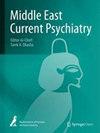Assessment of brain-derived neurotrophic factor levels in serum of children with autism spectrum disorders
IF 1.6
Q3 PSYCHIATRY
引用次数: 0
Abstract
The autism spectrum disorder (ASD) has no identified biomarker for early detection or for its severity. As for the brain-derived neurotrophic factor (BDNF), it is a crucial neurotropic factor that regulates the plasticity and maturing of neuronal synapses. Accordingly, it might influence how children with autism develop. To evaluate the BDNF serum levels in autistic children and their relationship with the illness severity as well as with the common drugs received by autistic patients, 60 patients with autism along with another 60 normally developing children were involved in the study. Using the Childhood Autism Rating Scale (CARS), the severity of autism was then evaluated. The ELISA method was used to measure the BDNF level. It was seen that the BDNF concentrations were higher in autism patients (P < 0.001). There was also a highly strong positive association between the CARS score and the BDNF (P < 0.001). Using the cut-off value of > 2.8 of BDNF helped to distinguish between well-developing and autistic children, with the aspects of “sensitivity” and “specificity” being 88.3% and 80%, respectively. Moreover, children with autism who received omega-3 had statistically lower levels of BDNF than those who did not take any (P = 0.040). The serum BDNF concentration is higher in autism; this proposes that the BDNF may contribute to the onset or progress of autism. Therefore, it may be used as a noninvasive biomarker for the illness severity because of its greater occurrence in autistic children who have severe social impairment.评估自闭症谱系障碍儿童血清中的脑源性神经营养因子水平
自闭症谱系障碍(ASD)尚无可用于早期检测或判断其严重程度的生物标志物。至于脑源性神经营养因子(BDNF),它是一种重要的神经营养因子,可调节神经元突触的可塑性和成熟。因此,它可能会影响自闭症儿童的发育。为了评估自闭症儿童血清中的 BDNF 水平及其与病情严重程度和自闭症患者常用药物的关系,研究人员对 60 名自闭症患者和另外 60 名发育正常的儿童进行了调查。然后使用儿童自闭症评定量表(CARS)评估自闭症的严重程度。研究采用 ELISA 方法测量 BDNF 水平。结果显示,自闭症患者的 BDNF 浓度更高(P 2.8),BDNF 有助于区分发育良好的儿童和自闭症儿童,其 "灵敏度 "和 "特异性 "分别为 88.3% 和 80%。此外,从统计学角度看,服用欧米伽-3 的自闭症儿童的 BDNF 水平低于未服用欧米伽-3 的儿童(P = 0.040)。自闭症儿童血清中的 BDNF 浓度较高,这表明 BDNF 可能是自闭症发病或进展的原因之一。因此,BDNF 可用作衡量疾病严重程度的非侵入性生物标志物,因为自闭症儿童有严重的社交障碍。
本文章由计算机程序翻译,如有差异,请以英文原文为准。
求助全文
约1分钟内获得全文
求助全文
来源期刊

Middle East Current Psychiatry
Medicine-Psychiatry and Mental Health
CiteScore
3.00
自引率
0.00%
发文量
89
审稿时长
9 weeks
 求助内容:
求助内容: 应助结果提醒方式:
应助结果提醒方式:


